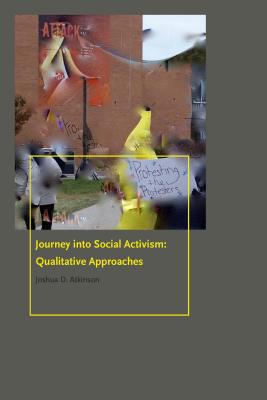Academic study of social activism and social movements has become increasingly prevalent over the years; this is due in large part to the fact that activists have captured public imagination and gained substantial influence in political discourse. For instance, Occupy Wall Street activists, Tea Party activists, and activists affiliated with the Arab Spring have transformed political debates, and have become the focus of mainstream news media coverage about a variety of different political topics. The prevalence of these activists in the public realm has led many students and scholars in academia to examine the ever shifting political landscape of the 21st Century, and the role of social activism within that landscape.
Interestingly, a significant portion of that academic research has relied heavily on qualitative methods, such as ethnography and textual analysis. As more students and scholars look to explore social activism through the use of such qualitative methods, and as activism plays a larger role in contemporary society, it has become vital that researchers fully grapple with the different underpinnings and approaches to conducting qualitative research on this topic. This book explicates the philosophical foundations of the study of activism, and illustrates four different research sites in which activism can be observed and studied: organizations, networks, events, and alternative media. The book will introduce students and scholars to important qualitative approaches to the study of social activism within these four research sites, which is based entirely on successful research projects that have been conducted and published in recent years. Ultimately, this book will prove integral to any students and scholars who wish to use qualitative methods for their research endeavors concerning social activism in contemporary society.
| FindBook |
有 1 項符合
Journey into Social Activism: Qualitative Approaches的圖書 |
 |
Journey into Social Activism: Qualitative Approaches 作者:Atkinson,Joshua D. 出版社:Fordham Univ Pr 出版日期:2017-02-01 語言:英文 規格:平裝 / 15.2 x 22.9 x 1.3 cm / 普通級 |
| 圖書館借閱 |
| 國家圖書館 | 全國圖書書目資訊網 | 國立公共資訊圖書館 | 電子書服務平台 | MetaCat 跨館整合查詢 |
| 臺北市立圖書館 | 新北市立圖書館 | 基隆市公共圖書館 | 桃園市立圖書館 | 新竹縣公共圖書館 |
| 苗栗縣立圖書館 | 臺中市立圖書館 | 彰化縣公共圖書館 | 南投縣文化局 | 雲林縣公共圖書館 |
| 嘉義縣圖書館 | 臺南市立圖書館 | 高雄市立圖書館 | 屏東縣公共圖書館 | 宜蘭縣公共圖書館 |
| 花蓮縣文化局 | 臺東縣文化處 |
|
|
圖書介紹 - 資料來源:博客來 評分:
圖書名稱:Journey into Social Activism: Qualitative Approaches
|











